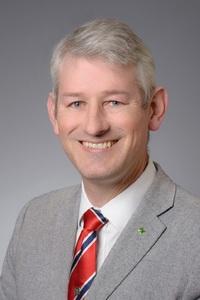Abstract
In the next few decades, autonomous vehicles will become an integral part of the traffic flow on highways. However, they will constitute only a small fraction of all vehicles on the road. This research develops technologies to employ autonomous vehicles already in the stream to improve traffic flow of human-controlled vehicles. The goal is to mitigate undesirable jamming, traffic waves, and to ultimately reduce the fuel consumption. Contemporary control of traffic flow, such as ramp metering and variable speed limits, is largely limited to local and highly aggregate approaches. This research represents a step towards global control of traffic using a few autonomous vehicles, and it provides the mathematical, computational, and engineering structure to address and employ these new connections. Even if autonomous vehicles can provide only a small percentage reduction in fuel consumption, this will have a tremendous economic and environmental impact due to the heavy dependence of the transportation system on non-renewable fuels. The project is highly collaborative and interdisciplinary, involving personnel from different disciplines in engineering and mathematics. It includes the training of PhD students and a postdoctoral researcher, and outreach activities to disseminate traffic research to the broader public.
This project develops new models, computational methods, software tools, and engineering solutions to employ autonomous vehicles to detect and mitigate traffic events that adversely affect fuel consumption and congestion. The approach is to combine the data measured by autonomous vehicles in the traffic flow, as well as other traffic data, with appropriate macroscopic traffic models to detect and predict congestion trends and events. Based on this information, the loop is closed by carefully following prescribed velocity controllers that are demonstrated to reduce congestion. These controllers require detection and response times that are beyond the limit of a human's ability. The choice of the best control strategy is determined via optimization approaches applied to the multiscale traffic model and suitable fuel consumption estimation. The communication between the autonomous vehicles, combined with the computational and control tasks on each individual vehicle, require a cyber-physical approach to the problem. This research considers new types of traffic models (micro-macro models, network approaches for higher-order models), new control algorithms for traffic flow regulation, and new sensing and control paradigms that are enabled by a small number of controllable systems available in a flow.
Jonathan Sprinkle
Dr. Jonathan Sprinkle is a Professor of Computer Science at Vanderbilt University. From 2007-2021 he was with the faculty of Electrical and Computer Engineering of the University of Arizona, where he was a Distinguished Scholar and a Distinguished Associate Professor. He served as a Program Director at the National Science Foundation from 2017-2019 in the Computer and Information Science and Engineering Directorate, working with programs such as Cyber-Physical Systems, Smart & Connected Communities, and Research Experiences for Undergraduates.
Performance Period: 01/01/2015 - 12/31/2017
Institution: University of Arizona
Sponsor: National Science Foundation
Award Number: 1446435
